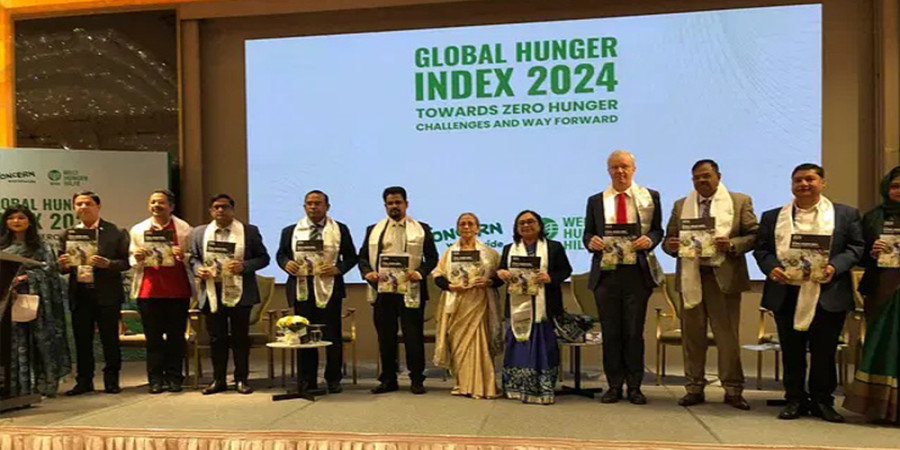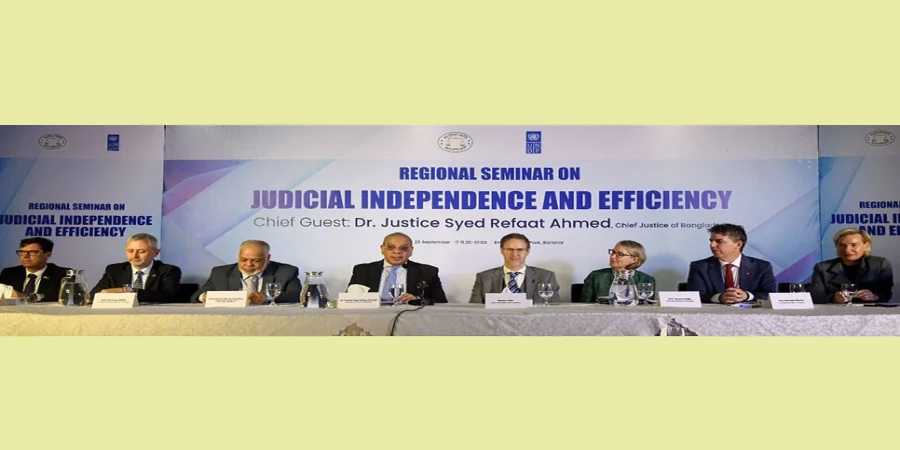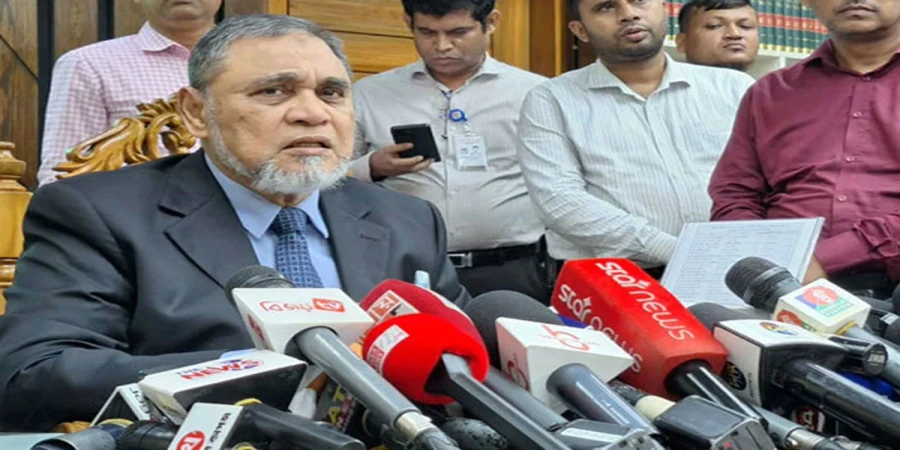
ছবি: Photo: Collected
Bangladesh has been ranked 84th out of 127 countries in the Global Hunger Index (GHI) 2024, scoring 19.4, which places it in the category of moderate hunger. The report, published on Wednesday at a hotel in the capital, highlights both progress in combating hunger and ongoing challenges that require urgent attention. Organized jointly by Welthungerhilfe Bangladesh and Concern Worldwide, the launch event also featured a discussion on “Towards a Hunger-Free Bangladesh: Barriers and Solutions.”
Farida Akhter, Advisor to the Ministry of Fisheries and Livestock, attended as the chief guest. Distinguished guests included Dr. Michel Creza, Head of Development Cooperation at the European Union, and Masudul Hasan, Secretary of the Ministry of Food. Additional Secretary of the Cabinet Division Mohammad Khaled Hasan and Dr. Mohammad Mahbubur Rahman, Director General of the National Nutrition Council, were also present.
Farida Akhter emphasized the need for sustainable agricultural practices to ensure a safe food supply and address nutritional security. She highlighted Bangladesh's rich biodiversity, particularly its fish resources, and urged for their preservation. She also stressed the importance of recognizing and integrating women’s traditional knowledge into food security strategies. Unplanned development activities, she noted, are adversely affecting the country’s food systems.
Dr. Michel Creza stated that the European Union has been supporting Bangladesh through multi-sectoral development initiatives in agriculture, food security, education, and health. He pointed out that many vulnerable populations cannot afford nutritious food and called for prioritizing them within social safety net programs to strengthen overall food security mechanisms.
Welthungerhilfe Bangladesh Country Director Pankaj Kumar, in his opening speech, acknowledged Bangladesh’s significant progress in reducing hunger but noted that the country still faces critical challenges, as evidenced by the GHI 2024. He emphasized the importance of community-based solutions, inclusive policies, and climate resilience to break the cycle of hunger.
The report also places Bangladesh ahead of regional neighbors like India, Pakistan, and Afghanistan in the GHI rankings but behind Nepal and Sri Lanka. This disparity underscores the mixed outcomes in addressing hunger across South Asia.
Participants at the event, including policymakers, experts, development partners, civil society representatives, academics, and aid workers, engaged in discussions on tackling hunger and malnutrition. They underscored the need for effective solutions, emphasizing the importance of addressing structural inequalities and environmental challenges that exacerbate food insecurity.
In his concluding remarks, Concern Worldwide Country Director Manish Kumar Agarwal highlighted the multidimensional nature of the GHI 2024. He explained that the report not only evaluates hunger trends and scores but also explores issues such as climate resilience and the critical role of addressing gender inequality in achieving zero hunger. He noted that women and girls are disproportionately affected by food insecurity, malnutrition, and the impacts of extreme weather and climate-induced disasters. Agarwal stressed the necessity of establishing gender neutrality at both individual and systemic levels to create a more inclusive approach to food security.
The event marked a collaborative effort to examine the barriers and pathways to achieving a hunger-free Bangladesh. The discussions concluded with a collective call to action for strengthened policies and targeted initiatives to ensure that no one is left behind in the fight against hunger and malnutrition.
repoter






